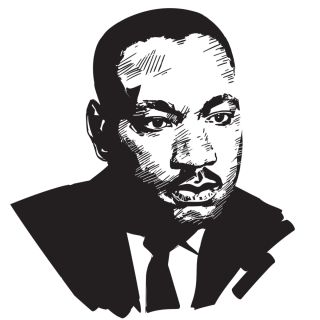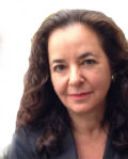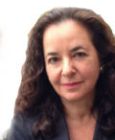Friends
The Idea of the Beloved Community
The creative friendship of Martin Luther King Jr. and Thich Nhat Hanh.
Posted January 13, 2023 Reviewed by Tyler Woods
Key points
- The idea of the Beloved Community originated with Harvard philosophy professor Josiah Royce.
- Martin Luther King Jr. developed the idea as vision for how we could all live in harmony.
- Zen monk and meditation teacher Thich Nhat Hanh expanded on the concept to include all forms of life.
The world we’ve built feels increasingly fragile as we face new and more severe forms of climate change, political upheavals, and ongoing wars. As I reflect on Martin Luther King Jr.’s legacy, I am inspired by his focus on the importance of joining together to work for common humanity, what he called the “Beloved Community.” Without community, we can’t go very far. And without a harmonious community, he stated, we won’t be able to realize our dream.
The Work of Josiah Royce
Where did the idea of the “Beloved Community” originate? It turns out that Josiah Royce, a philosophy professor at Harvard, developed the idea. In 1913, Royce wrote, “My life means nothing, either theoretically or practically, unless I am a member of a community.” He observed that, besides the actual communities we experience in our daily lives, there was also an ideal “beloved community” made up of all those who were dedicated to the cause of loyalty and truth. Royce did not see the community as a static object but as an all-embracing, radical idea of unity for the whole human race.

The Impact on Martin Luther King Jr.
King, who trained in philosophy, continued this idea when writing “Facing the Challenge of a New Age” in 1956.
“But the end is reconciliation; the end is redemption; the end is the creation of a beloved community. It is this type of spirit and this type of love that can transform opposers into friends. It is this kind of understanding and goodwill that will transform the deep gloom of the old age into the exuberant gladness of the new age. It is this love which will bring about miracles.”
It turns out that just as King extended the insights of a great philosopher, the Buddhist monk Thich Nhat Hanh, who was a friend of King’s, further extended and developed this idea. Thich Nhat Hanh, a philosopher and visionary in his own right, is often called “the father of mindfulness.”
In a new book by Marc Andrus, Brothers in the Beloved Community, he describes the friendship between these two men who inspired each other.
Thich Nhat Hanh's Contribution
Thich Nhat Hanh was devastated by King's assassination. After King’s murder, Thich Nhat Hanh committed himself to building a Beloved Community. He wrote, “When I heard the news, I was devastated. I could not eat. I could not sleep. I made a deep vow to continue building what he called the Beloved Community, not only for myself but for him also.”
At the core of Thich Nhat Hanh's teaching was the philosophical idea of non-duality, the connection of all life and of all things. For example, he believed that as peace flowers in your heart, it also flowers in the universe. He began to see the Beloved Community from this perspective. As the Beloved Community is built, repaired, and manifested in our hearts and our consciousnesses, so it is healed for all beings.
There were times when Thich Nhat Hanh fell into despair. It was hard for him to remain hopeful about the future. He wrote, “They killed Martin Luther King, they killed us. I’m afraid the root of violence is so deep in the heart and mind and manner of this society. They killed him. They killed my hope. I do not know what to say. He made so great an impression on me. This morning, I have the impression that I cannot bear the loss.”
Yet as he processed this great loss, he drew on King’s optimism and took strength from it. Over time, he came to understand death differently. “When you lose a loved one, you suffer. But if you know how to look deeply, you have a chance to realize that his or her nature is truly the nature of no birth, no death.”
Despite great darkness and violence, King had always remained hopeful.
“When our days become dreary with low-hovering clouds and our nights become darker than a thousand midnights, we will know that we are living in the creative turmoil of a genuine civilization struggling to be born.”
Thich Nhat Hanh, who died just a few months ago, came to believe that the work of enlightened beings doesn’t end with death—that they continue to be with us, helping us manifest the Beloved Community. And his idea of community continued to expand, eventually including all of life, not just human life.
As we step back and look at the evolution of this inspiring idea, we realize that, at its core, it is about all of us. It is about relationships and their depth. It means that we all matter. And that we are all Beloved.
References
Andrus, M. (2021). Brothers in the Beloved Community. Berkeley: Parallax Press.




